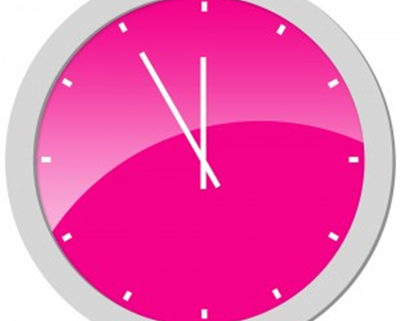THE FERTILITY CHECKUP
Cassandra is a 28-year old student who is working toward her masters degree in education. She has had a boyfriend for the last two years and takes birth control pills. At her recent visit with me for her annual exam, she asked, “How do I know if I can have a baby someday? How do I know if I’m fertile?”.
The short answer to this question is that you don’t know if you are fertile until you actively try to get pregnant for 6-12 months. This means that you have unprotected intercourse 2-3 times per month around the time of ovulation for a year. But some women want to know if there are tests they can do ahead of time, just to check.
Your history
We can get some answers to this question just by listening to your history. Do you have regular monthly periods when you are not on birth control? If you have periods that are 21-35 days apart, most likely you are ovulating. Have you ever had a pelvic infection such as appendicitis, pelvic inflammatory disease, or an STD? Have you had surgery on your ovaries or tubes? If you haven’t, most likely your fallopian tubes are open and can allow the passage of sperm to meet the egg.
Your age
As you get older, the quality of your eggs declines. No matter how healthy you are, the quality of eggs in a 40 year old woman is much less than those in a 30 year old. As a result, the chance of getting pregnant when you are 30 is 20% per month. If you are 40, it is 5% per month.
Your ovarian reserve
Ovarian reserve refers to the number of viable eggs remaining in your ovaries. You are born with all the eggs you will ever have. As you get older, the eggs degenerate. The fewer viable eggs you have, the less likely you are to get pregnant. Ovarian reserve can be evaluated by three tests:
- Follicle Stimulating Hormone (FSH). Checking the level of FSH in your blood can give us a general idea of your ovarian reserve. FSH is a hormone that is produced in the pituitary gland in your brain that tells your ovary to produce its monthly egg. When there are fewer eggs or eggs of poor quality, more FSH is needed to force the egg to mature. Therefore, high FSH levels are associated with infertility. The FSH must be tested at a certain time of the cycle (ideally on day 3) and you cannot be on birth control at the time. Normally, this is a blood test done in your doctor’s office, but there is also a urine test kit that you can purchase at your local pharmacy.
- Anti-Muellerian Hormone (AMH). Measuring AMH is another blood test for ovarian reserve. AMH is made by growing follicles (eggs). When the AMH is low, it means there are fewer eggs in the ovaries. The test can be done at any time of the menstrual cycle.
- Performing a vaginal ultrasound to assess the antral follicle count (AFC) can also give us an idea for your potential to get pregnant. Antral follicles are eggs that are in a particular stage of development. They appear on a vaginal ultrasound of your ovaries as small black cysts. If the AFC is low, it is less likely that you will conceive. An AFC can be done by your gynecologist or a fertility doctor but it may not be covered by your health insurance.
We encourage our patients to be aware of their biological clocks but also to recognize that 90% of couples are able to conceive without any problem. You should talk to your gynecologist if you are interested in having a “fertility checkup”. And remember, the best test for fertility is simply to try to get pregnant.




Leave a Reply
Want to join the discussion?Feel free to contribute!